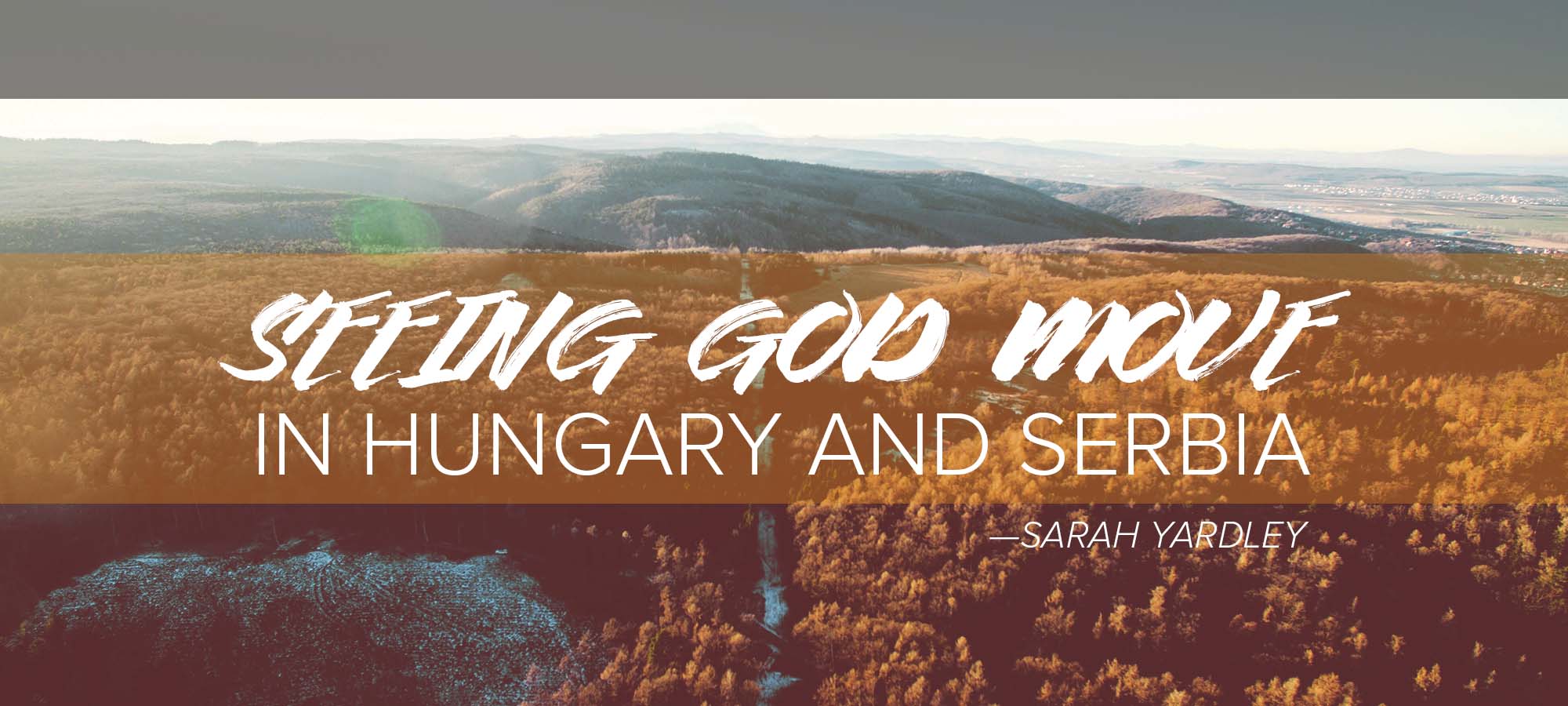
Which would be worse… to stay and watch your country torn apart by war or to travel days on end through bitter cold to escape the suffering? Winter is a terrible, beautiful thing. We speak of the winter of our souls, the icy seasons where we cannot see or feel the voice of God.
Scripture dances around this idea of cold, speaking of the God who hurls down ice crystals like crumbs (Psalms 147:17), the one who makes snow and mist, stormy wind fulfill His word (Psalms 148:8).
Today I write from Serbia…
Where the only adjective for cold is the predictable one: It is bitter. It seeps through layers, beneath gloves, finds any exposed area and turns it chafing red and chapped. I’m a tourist, essentially; here for a few days of refugee ministry, able to find shelter, blankets, kettles and restaurants. Even if I sleep in my coat, I sleep with walls around me, guarding the winds and snow.
In the streets of Belgrade, several thousand men sleep in this cold. A few have tents, some pallets; a few more curl up at night in an abandoned, smokey building. All are refugees. The scene in Serbia and the refugee crisis are reminiscent of so many places where we ask God: Why? Why are so many displaced? Why are the borders closed? Why are the countries in shambles? Why do we only see men here? Uncurling the tendrils and the political implications of their conclusions is the work of our generation, and a bigger one than this article can answer, but today, I want to respond to the why with one story of hope.
When the mass exodus began from Iran, Pakistan, Afghanistan, Syria, a group of men found themselves in the refugee camp at Debrecen in Hungary. They had no connection from their home country but found themselves united against the strange foreignness of the Magyar.
During their time in the camp, they heard about Jesus from a pastor affectionately known as Bodi. The more they learned, the more they loved him. Soon, their hunger for the Word of God became evident to many. They were baptized, discipled, and on their eventual release from the camp, found their way to Budapest.
Over 20 Farsi-speaking attendees meant “Golgota” in Budapest (the Hungarian word for Calvary) needed to provide translation, support and small Bible studies. So they did. In January, in the bitterness of cold and winter, I met many of these men. We sat in a circle, and they told us snippets of their stories, glimpses of a war-torn fleeing that somehow became the salvation of more than just their bodies.
In the winter of our souls, God is moving.
In the unanswered whys, He whispers His love. In the refugee “crisis,” He sends more than just the crumbs of His love. Find out more about the work of God in Hungary and Serbia and how you can connect; visit CCBCE.
But perhaps in contrast to that first question: Which would be better? To stay forever safe, wrapped in the boundaries of what you know? Or to step into even what is cold and bitter and discover a God who is Immanuel, with us? “As sorrowful, yet always rejoicing; as poor, yet making many rich; as having nothing, yet possessing everything” (2 Corinthians 6:10).






